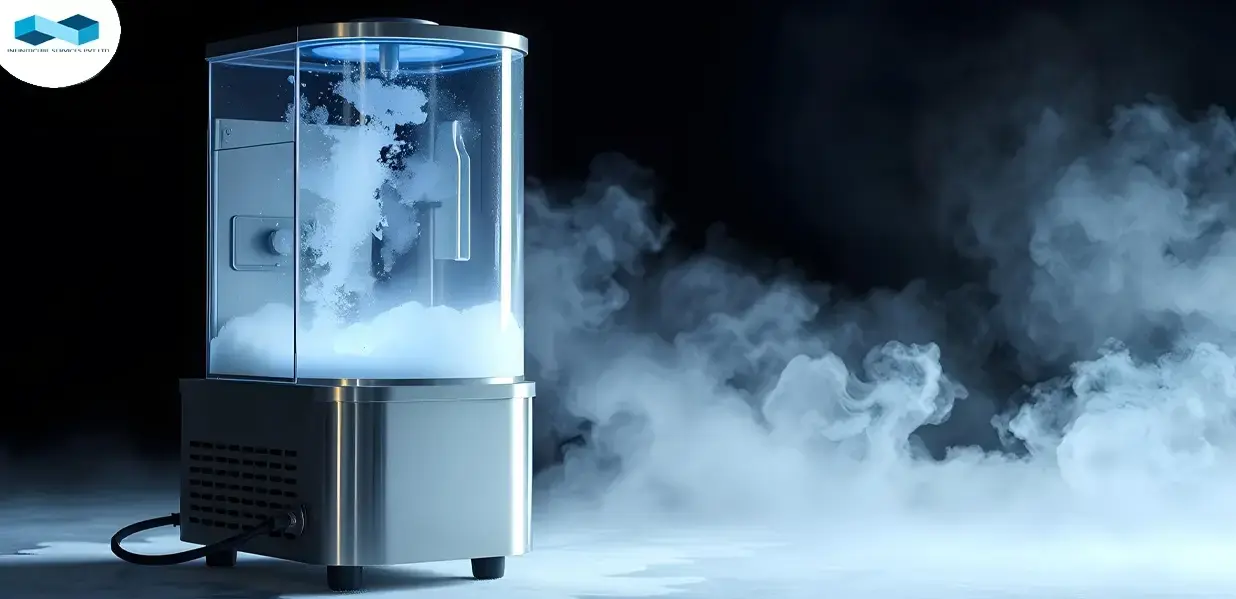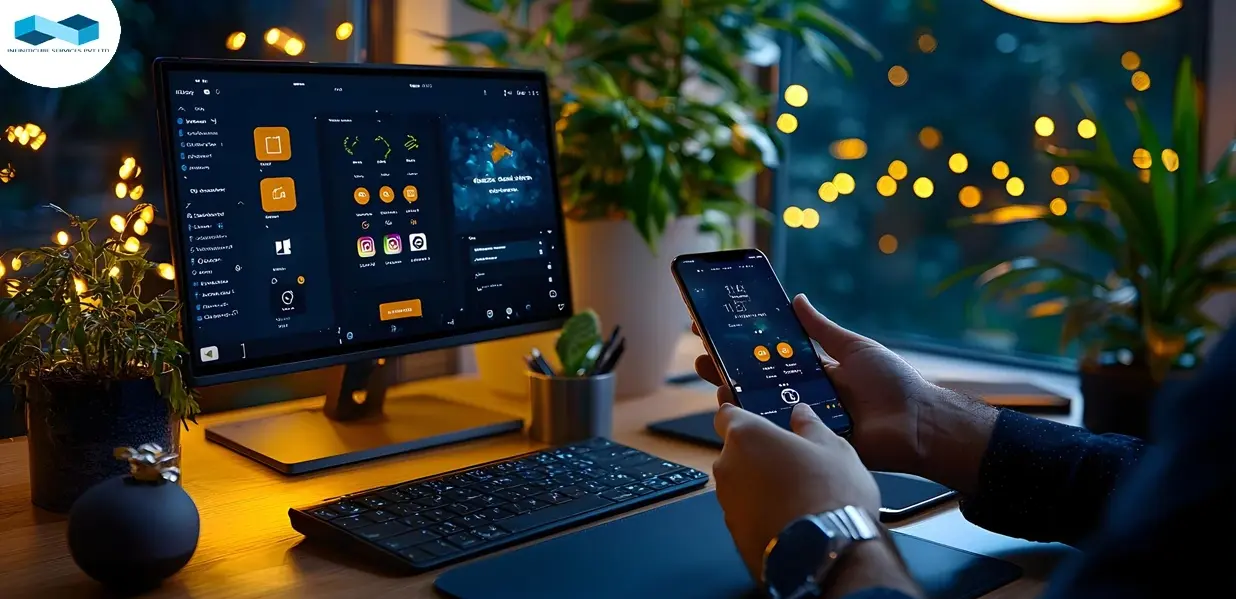How Startups Are Disrupting the Air Purifier Industry
I. Introduction
Startups are revolutionizing the $25.58 billion air purifier industry, projected to grow by 2030. Many are developing smart, sustainable solutions to improve indoor air quality, which can be significantly more polluted than outdoor air.
This has led to innovative products focusing on advanced technology, affordability, and eco-friendliness. Startups utilize IoT, AI, and green technologies to create efficient air purifiers accessible to everyday users. With indoor air pollution posing health risks, consumers are increasingly seeking effective air quality solutions.
Startups are addressing this demand by introducing multifunctional products, including air quality index trackers, promoting a healthier environment. Explore these innovations for a sustainable future.
II. The Traditional Air Purifier Industry Landscape
For decades, the air purifier industry has been led by established giants like Dyson, Philips, and Honeywell. These companies dominate the market with their premium products, catering to both residential and office spaces. Their offerings are often designed to project luxury and high performance, appealing to customers willing to invest in top-of-the-line solutions.
Key features of these brands include:
- Advanced filtration technologies like HEPA filters and activated carbon layers.
- Premium pricing models targeting upper-middle-class and affluent demographics.
- Air purifier solutions tailored for larger spaces, marketed as ideal for homes and professional environments.
Limitations of Traditional Air Purifiers:
Despite their market dominance, traditional air purifiers have some notable shortcomings:
- Cost Barrier:
Many of these products, such as Dyson’s air purifiers, are priced in a range that makes them inaccessible to the average consumer. High costs have created a gap in providing affordable air purification solutions for smaller homes or rooms.
- Limited Versatility:
Traditional models often lack compact designs that cater to different needs, such as air purifier AC combinations, which combine air cooling with purification. These dual-function models are becoming increasingly popular in modern living spaces but remain underexplored by industry veterans.
- Slow to Adopt Personalization:
The legacy air purifier market has been slower to embrace features like tailored air quality adjustments for allergies, pollution levels, or specific room types. Startups are rapidly filling this gap by integrating smart features like air quality index (AQI) monitoring and app-based controls.
Why This Matters:
The inability of traditional players to address these limitations has opened the door for startups to innovate and capture unmet consumer needs. By focusing on affordability, multi-functional designs, and real-time personalization, new entrants are revolutionizing how air purification devices are perceived and utilized.

Discover How Startups Are Redefining Air Purifiers
III. The Rise of Startups in the Air Purifier Market
Why Startups Are Thriving:
Startups have rapidly gained traction in the air purifier market by addressing gaps left by traditional players. Several factors contribute to their success:
- Increased Consumer Demand:
Consumers are actively seeking cost-effective, efficient air purifier at home solutions to combat rising indoor air pollution. Startups offer affordable options tailored to small spaces, making them more accessible to a broader audience.
- Innovation Funding:
The surge in funding for eco-friendly and tech-driven projects has empowered startups to experiment with groundbreaking technologies. Many new entrants focus on IoT connectivity, AI-driven optimization, and sustainable materials, tapping into trends that resonate with modern consumers.
Examples of Startup Disruptors:
- Molekule:
Known for its proprietary PECO (Photo Electrochemical Oxidation) technology, Molekule has set a new standard for air purification by eliminating microscopic pollutants traditional HEPA filters miss. Its sleek, modern design and smartphone app connectivity cater to tech-savvy, health-conscious users.
- Mila:
Mila’s air purifiers stand out with features like adaptive fan speeds based on real-time air quality and tailored modes for allergies, sleep, or urban pollution. Its user-friendly app provides detailed air quality index (AQI) data, ensuring transparency and ease of control.
- Coway Airmega:
Though technically a larger player, Coway’s Airmega line has embraced startup-style innovation by offering smart purifiers with voice control and data-driven air quality insights.
Impact of These Disruptors:
Startups redefine air purifier benefits by merging cutting-edge technology with practical design. Tailored solutions for issues like seasonal allergies or urban smog are a direct response to consumer-specific needs. This personalized approach and an emphasis on connectivity ensure startups remain competitive in a traditionally monopolized market.
By driving affordability, innovation, and customization, startups are reshaping the air purifier industry to align more closely with evolving consumer demands.

Revolutionize Your Indoor Air Quality with Startup Tech
IV. Innovations Introduced by Startups
Technological Advances:
Startups are leading the charge in developing smarter, more efficient air purification systems by incorporating cutting-edge technologies:
- AI and IoT Integration:
- Smart Air Purifiers: IoT-enabled devices allow users to monitor and manage air purifiers remotely via mobile apps. These systems provide real-time air quality index (AQI) updates, enabling precise adjustments for optimal performance.
- AI Algorithms: Predictive AI models analyze usage patterns and air quality trends, optimizing filter life and power consumption while ensuring cleaner air.
- Advanced Filtration Technologies:
- Filters that go beyond traditional HEPA, incorporating molecular-level purification techniques like PECO (Photo Electrochemical Oxidation) to eliminate ultra-fine particles and allergens.
- Hybrid solutions such as air purifier AC models, combine air cooling and purification for multi-functionality in compact spaces.
Design and Functionality:
Startups focus on redefining the aesthetics and usability of air purifiers to cater to modern lifestyles:
- Space-Saving Designs:
- Minimalist and sleek designs for air purifiers for room solutions, ideal for small apartments or offices.
- Portable and wearable models targeting commuters and outdoor enthusiasts for on-the-go air purification.
- Customizable Features:
- Tailored settings for specific needs, such as modes for allergen removal, pollution reduction, or sleep-friendly operation.
- Smart scheduling and adaptive fan speeds that respond dynamically to changes in indoor AQI.
Sustainability and Eco-Friendliness:
With a growing emphasis on sustainability, startups are innovating to align their products with eco-conscious consumer values:
- Sustainable Materials:
- Air purifiers are made with recyclable and biodegradable materials.
- Reusable filter options reduce waste, offering an eco-friendly alternative to disposable components.
- Energy Efficiency:
- Startups prioritize energy-saving technologies to reduce power consumption without compromising performance.
- Solar-powered air purifiers and devices with low standby energy use are gaining popularity among green living advocates.
The Bigger Picture:
By combining advanced technology, user-centric designs, and sustainability, startups are transforming the air purifier industry. These innovations make air purification more accessible, efficient, and environmentally friendly, addressing growing concerns over indoor air quality while delivering significant air purifier benefits for homes and workplaces.

Get Inspired by Disruptive Air Purifier Startups
V. New Business Models Adopted by Startups
Subscription-Based Services:
Startups are transforming the way customers interact with their air purifier products by introducing subscription-based models that add value and convenience:
- Filter Replacements and Maintenance Plans:
- Customers receive regular filter replacements directly at home, ensuring devices operate at peak efficiency.
- Maintenance plans bundled with subscriptions reduce the hassle of upkeep while enhancing air purifier benefits for long-term use.
- Cost Accessibility:
- Subscription pricing lowers the upfront investment needed for high-quality air purifiers for room solutions.
- Affordable plans encourage users to adopt and sustain better air quality practices.
Direct-to-Consumer (DTC) Strategies:
Many startups have embraced a DTC model, leveraging online platforms to streamline operations and reach customers directly:
- Online Sales for Cost Efficiency:
- Bypassing traditional retail channels reduces distribution costs, making air purifiers at home systems more affordable.
- Customers benefit from direct access to product details, reviews, and transparent pricing.
- E-commerce as a Catalyst:
- E-commerce platforms enable startups to showcase compact and innovative devices globally.
- Seamless online purchasing and fast delivery make air purifiers for room products easily accessible to consumers.
Crowdfunding and Crowdsourcing:
Startups are creatively leveraging crowdfunding to develop cutting-edge solutions and engage early adopters:
- Platforms like Kickstarter:
- Innovative devices in the air purifier industry are often funded by passionate backers who value clean air technologies.
- Crowdfunding provides startups with the resources to build prototypes, test new ideas, and launch products that improve air quality.
- Engaging with Enthusiasts:
- Crowdsourcing allows startups to gather feedback and insights from consumers invested in better air quality solutions.
- Early backers act as ambassadors, promoting products within their communities.
Key Takeaway:
By adopting innovative business models, startups are breaking traditional barriers in the air purifier market, offering cost-effective, customer-centric solutions. These strategies not only make air purifiers more accessible but also foster stronger connections with users passionate about maintaining cleaner and healthier environments.
VI. Addressing Specific Consumer Needs
Targeting Urban Areas:
Startups are innovating to meet the needs of densely populated cities, where air quality is a growing concern:
- Solutions for High-Density Cities:
- Devices optimized for urban pollution, addressing high particulate matter (PM2.5) levels and other contaminants.
- Features include advanced sensors for tracking the air quality index in real-time, ensuring rapid adjustments.
- Compact Designs:
- Space-efficient air purifier for room models tailored for small apartments and confined spaces.
- Portable devices make it easier for urban dwellers to carry clean air solutions wherever they go.
Focusing on Personalization:
Consumer demand for tailored features has driven startups to create highly customizable products:
- Tailored to Specific Needs:
- Devices designed to address particular issues, such as allergens, smoke, or pet dander.
- Features like air purifier AC systems that double as cooling units and air purifiers, catering to multi-functional demands.
- Enhanced Control Options:
- Smart apps offering users the ability to fine-tune settings for their unique environment.
- Personalization ensures maximum air purifier benefits for different lifestyles and locations.
Affordable Solutions for Families:
Affordability remains a key factor for households, and startups are making strides to bridge the gap:
- Cost-Effective Models:
- Introducing budget-friendly air purifier for home solutions that deliver premium performance without a high price tag.
- Leveraging innovations in production and distribution to lower costs.
- Family-Centric Features:
- Quiet operation and child-safe designs make these devices practical for households with children.
- High-efficiency particulate filters (HEPA) to ensure better air for the whole family.
Key Takeaway:
Startups are addressing specific consumer needs by designing products that adapt to diverse lifestyles and environments. By focusing on urban areas, personalization, and affordability, these companies are redefining the accessibility and relevance of air purifiers for modern households.

Uncover the Future of Air Purifiers
VII. Challenges Faced by Startups
Competing Against Established Players
- Market Dominance by Major Brands
- Established companies like Dyson and Philips dominate the air purifier industry, benefiting from decades of consumer trust and recognition.
- Startups face the uphill task of differentiating themselves while building credibility in a crowded marketplace.
- Overcoming Brand Recognition Challenges
- New entrants must invest heavily in marketing to create awareness for their air purifier for home solutions.
- Competing on both price and perceived value often forces startups to operate on thinner margins.
Regulatory Compliance
- Strict Air Quality Standards
- Devices claiming to improve air quality must meet rigorous international certifications (e.g., HEPA standards, energy efficiency ratings).
- Compliance is costly and time-consuming, particularly for startups with limited resources.
- Ensuring Accuracy in Claims
- Consumers demand transparency and proof of effectiveness, particularly regarding claims like "improves air quality index metrics."
- Startups need to invest in extensive testing and research, which can be resource-intensive.
Scaling Operations
- Production and Distribution Challenges
- Managing supply chains for affordable yet high-quality air purifier for room models is complex, especially during periods of high demand.
- Startups often struggle to meet global demand while maintaining competitive pricing.
- Logistical Limitations
- Expanding to new markets involves navigating import/export regulations and establishing local partnerships.
- Building a robust after-sales service network for maintenance and filter replacements is essential but challenging for new players.
Key Takeaway:
Despite their innovative approaches, startups in the air purifier industry face significant challenges. These include overcoming market giants, adhering to strict regulations, and scaling operations effectively. Addressing these hurdles is critical for startups to thrive and bring revolutionary solutions to consumers worldwide.
VIII. The Future of the Air Purifier Industry
Startup-Driven Trends
- AI and IoT Integration
- Startups are focusing on combining AI and IoT technologies to create smarter air purifiers at home systems.
- Innovations such as predictive air quality adjustments and personalized settings will continue to enhance convenience and performance.
- Advancements in Hybrid Technologies
- The emergence of multifunctional devices like air purifier AC units is expected to grow.
- Hybrid models cater to consumers seeking space-saving, energy-efficient solutions for comprehensive indoor comfort.
- Wider Applications in Public and Workplace Settings
- The rising awareness of air purifier benefits is prompting startups to develop solutions tailored for shared spaces like schools, offices, and transit hubs.
- Smart purifiers integrated with air quality monitoring systems will play a vital role in maintaining healthier environments.
Global Expansion
- Reaching Underserved Markets
- Startups are addressing the demand for air purifier for home devices in regions with escalating pollution levels, such as parts of Asia and Africa.
- Affordable, portable models are gaining traction in areas with limited access to advanced air quality solutions.
- Meeting Diverse Needs
- Expanding product lines to meet specific regional challenges, such as combating urban smog or allergen-heavy environments.
- Solutions targeting both high-end and budget-conscious consumers globally.
Potential Collaborations
- Partnerships with Established Brands
- Startups may collaborate with major players in the air purifier industry to leverage established distribution networks and brand credibility.
- Joint ventures combine startup innovation with the operational expertise of traditional companies.
- Research and Development Collaborations
- Partnering with academic and environmental institutions to refine technologies that improve the air quality index.
- Collaborative projects focusing on sustainability and the development of eco-friendly materials for purifiers.
Key Takeaway:
The future of the air purifier industry lies in innovation, global outreach, and collaboration. Startups are well-positioned to lead the charge with smart, adaptable, and affordable solutions that cater to a wide range of consumer needs, ensuring cleaner air for everyone.
IX. Conclusion
Startups are innovating the air purifier industry with sustainable, cost-effective solutions tailored to modern lifestyles. They enhance accessibility by making affordable air purifiers for homes and rooms, focusing on advanced technology that improves air quality.
Consumers are encouraged to explore and support these startups, choosing products that meet their clean air needs. As the industry evolves, startups will reshape approaches to clean air, providing smarter and greener options. Embracing these innovations is essential for investing in a healthier future.
Revolutionizing Air Purification: Your Gateway to Smarter, Cleaner Living
At Infiniticube, we specialize in providing cutting-edge solutions for startups and businesses in the air purifier industry, empowering them to design and implement innovative, IoT-enabled products. Our services include:
- IoT and AI Integration: Seamlessly connect air purifiers to smart home ecosystems for real-time monitoring, remote control, and personalized settings.
- Advanced Filtration Solutions: Collaborate with us to develop hybrid technologies, such as air purifier AC systems, tailored to specific consumer needs like allergen control and urban pollution.
- Sustainable Innovations: We help create energy-efficient, eco-friendly devices that align with green living trends while ensuring optimal air quality improvement.
- Scalable Business Models: From subscription services to direct-to-consumer strategies, we provide end-to-end support for startups navigating competitive markets.
CTA:
Ready to redefine air purification? Partner with us to innovate smarter, greener, and more personalized air quality solutions. Contact Us Today to elevate your product offerings and lead the way in clean-air technology!
 June 27, 2025
June 27, 2025
 Balbir Kumar Singh
Balbir Kumar Singh
 0
0
 June 13, 2025
June 13, 2025
 Balbir Kumar Singh
Balbir Kumar Singh
 0
0












Leave a Reply